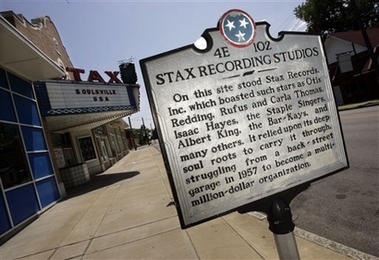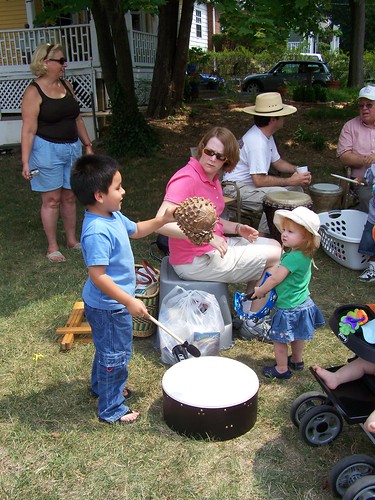Music and urbanity

A sign listing the Stax Records museum as an historic place is shown in Memphis, Tenn. is shown on May 16, 2007. (AP Photo/Mark Humphrey)
1. Maria Saporta of the Atlanta Journal-Constitution has a piece, "99X's demise means loss of unique Atlanta lifestyle," about the closure of the independent-alternative music station in Atlanta, how that impacts her relationship with her young adult children, and what it says about Atlanta.
Definitely the consolidation of the radio industry has constricted the ability of new bands to reach audiences.
Was WHFS part of the reason that DC had play in the music world in the 1980s, (i.e., Minor Threat, Fugazi, Bad Brains, etc.).
2. And music is one of the key community revitalization engines out there. A lot of time people talk about how "the arts" drives revitalization, and I suppose it does, as artists move into places that are cheap, and often that means "not great areas" and they help homestead improvements.
But the reality is that music brings lots of people out to places, and they pay money for it.
Face it, how many of us have bought a painting?
3. So that makes the 9:30 Club (IMP) point about Montgomery County giving a national music presentation company a preferred venue with preferred terms, without giving IMP an opportunity to bid pretty important. See "Deal Reached on Music Venue in Silver Spring" and "Open Up the Bidding in Silver Spring" from the Washington Post.
DC1974 argues, rightly, that having more competition within the local music scene makes for a better scene.

David Bowie, Capital Ballroom, September 1996. Photo by Barry Wilson. I miss this place. And it was a great concert.
At the same time, Live Nation is part of the consolidation engine of the music industry, which over time, actually reduces choice.
4. IMP is trying to expand in DC, but hasn't had much luck. Wouldn't it be terrible if they, like the National Children's Museum, and The Awakening sculpture, end up at National Harbor?
What does that say about the city's vitality in terms of music?
5. In this vein, especially after the impact of Hurricane Katrina on New Orleans' music scene, there has been more attention paid to supporting popular music as part of cultural planning. Traditionally, most municipalities end up supporting classical and opera music mostly, at the expense of other forms. See "Preserving the musical spirit of New Orleans" from the Boston Globe and "Music Landmark Caught in Tug of Priorities After Storm" from the New York Times.
Chicago has a Music Commission, although Chicago Sun-Times columnist Jim DeRogatis thinks the effort is being constrained by an over preference of the city for working with the Chicago Tribune. See "It's time to pump up the volume."
------
Some old blog entries on this topic:
-- Rocking Revitalization
-- John DeLorean, R.I.P (Rocking Revitalization Part II)
-- Even More about Rocking Revitalization
-- Do people who love music love Hard Rock Cafe?
-- The King is (Just About) Gone but he's not forgotten (Rockin' Revitalization Part Three)

Drumming and music at the Brookland Farmers Market, 2007.
Labels: arts-based revitalization, music-entertainment, urban revitalization



0 Comments:
Post a Comment
<< Home